Artists Against Apartheid XIV
BDS Quebec concert co-presented by AfroLatin Soul, feat. Detroit MC Invincible.
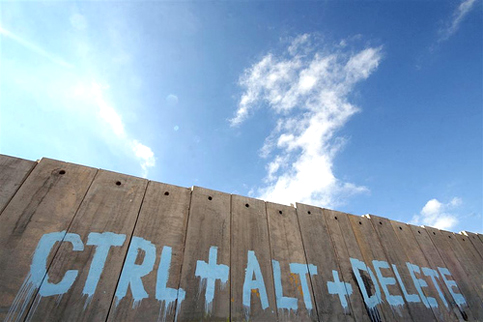
- Saturday, October 23rd, 2010
doors 20h30. $8-10
Le Consulat, 1442 Bleury 2nd floor
métro Place-des-Arts
Montreal, Quebec
BDS Quebec concert co-presented by AfroLatin Soul, feat. Detroit MC Invincible.

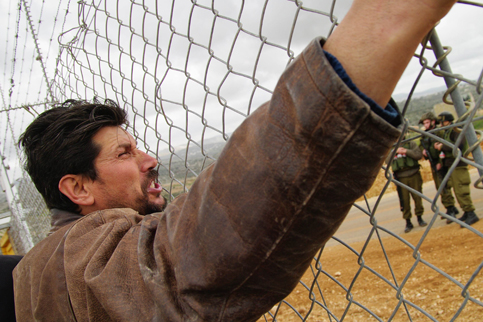
Photo Lazar Simeonov Palestinian activist & political prisoner Adeeb Abu Rahma
For over five years the Palestinian village of Bil’in has sustained a grassroots struggle for land and livelihood. Every Friday, Palestinian villagers brave a volley of sound grenades, tear gas canisters and rubber-coated steel bullets to stage demonstrations against the apartheid wall and the construction of Israeli settlements on Palestinian agricultural lands.
In many ways, Bil’in’s creative tactics have captured the imaginations of thousands of people both in Quebec and around the world, and have inspired other Palestinian villages across the West Bank. Resistance remains ongoing despite considerable repression on the part of Israeli Occupation Forces (IOF).
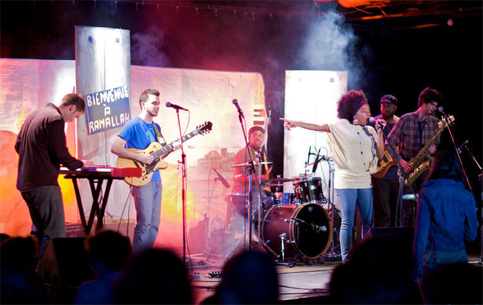
Photo Heri Rakotomalala. Kalmunity Jazz Project performs for World Education Forum.
Leading up to the World Education Forum, taking place in occupied Palestine this fall, over three-hundred people gathered in Montreal on Friday September 24th for a benefit concert to support the Quebec delegation to the global education forum and to strengthening grassroots support for the global gathering on popular and public education.
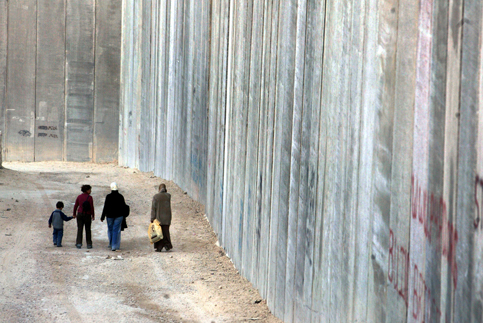
Israel began constructing the wall in June 2002 following its invasion of cities in the West Bank, which it dubbed “Operation Defensive Shield.” In retrospect, the invasion appears to have been a prelude to the construction of the wall and no one recognized the significance of the invasion’s code name at the time. The immense scale of the 2002 invasion — characterized by the destruction of Palestinian civilian infrastructure, mass arrests, assassinations and massacres — ensured that the construction of the wall would commence with as little resistance as possible.
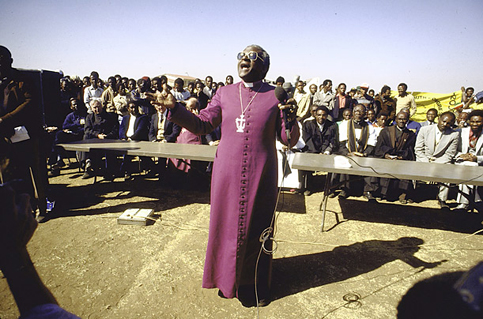
Archbishop Desmond Tutu of South Africa expressed concern Saturday over the conviction of a Palestinian anti-wall campaign leader by an Israeli military court for his involvement in non-violent protests.
“I am deeply concerned about the conviction earlier this week of Abdallah Abu Rahmah by an Israeli military court. When I met him with my fellow Elders last year, we were very impressed by his commitment to non-violence and the wise leadership he showed,” Tutu said in a statement.
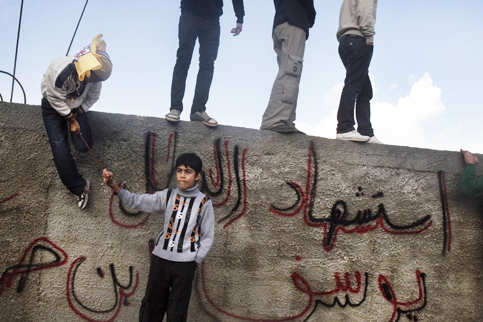
Photo Palestinians climb onto walls to try to spot Israeli soldiers entering Ni’lin.
Bil’in On Friday, 17 September 2010, the people of Bil’in were joined by Israelis and Internationals to protest against the theft of land and the imprisonment by Abdullah and Adeeb Abu Rahma, Ibrahim Burnat and other political prisoners from Bil’in. The demonstration went on for one and a half hours and was met with large amounts of tear gas and rubber-coated steel bullets. After initially firing tear gas from the military base and road, soldiers came through the gate and chased the protesters back towards the village.
This week’s protest called for the release of prisoners, who have been kept in jail under administrative detention (which is to say, without trial) and also the ones who have been victims of false charges and unjust trials in Israeli military courts. People were carrying masks of Abdallah Abu Rahma, who has been held in Ofer Military Prison since November, and is now in the sentencing phase of his trial after being convicted for “incitement”. Other people were wearing masks showing the faces of Gandhi and Martin Luther King. This is to show that Palestinian political prisoners enduring long sentences in Israeli prisons are peaceful activists, who are leading the non-violent struggle against the illegal Israeli occupation.
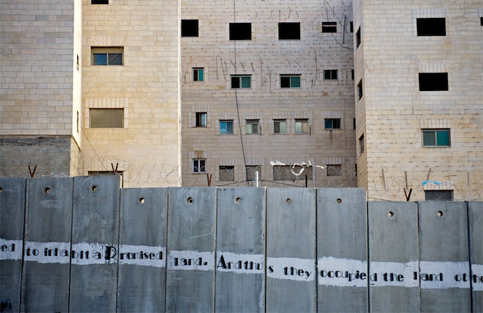
The actors’ boycott of the new Ariel cultural center received a boost yesterday with over 150 academics and several dozen authors and artists signing letters in their support.
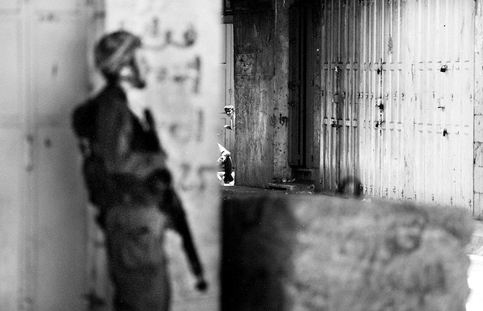
Photo Palestinian boy peers around a corner looking for Israeli occupation soldier.
George J. Mitchell, the United States Middle East envoy, tried to counter low expectations for renewed Israeli-Palestinian peace negotiations by harking back to his experience as a mediator in Northern Ireland.
At an Aug. 20 news conference with Secretary of State Hillary Rodham Clinton, announcing the talks that will begin this week, Mr. Mitchell reminded journalists that during difficult negotiations in Northern Ireland, “We had about 700 days of failure and one day of success” — the day in 1998 that the Belfast Agreement instituting power-sharing between pro-British unionists and Irish nationalists was signed.
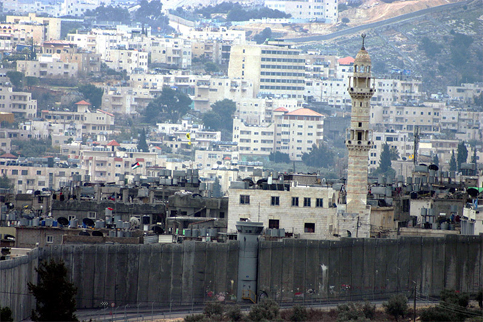
“It’s a musical intifada, a musical uprising,” says Shadia Mansour squinting in the sunshine outside the hip hop workshop she is running in the West Bank city of Hebron.
From inside, a DJ can be heard cutting out beats on his decks.
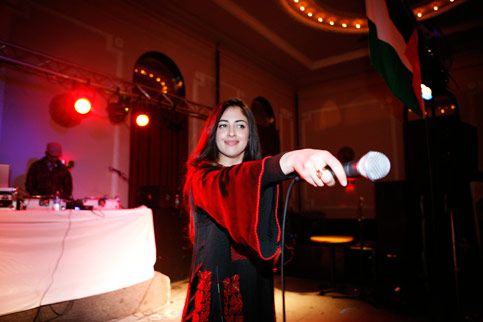
British-born Palestinian Hip Hop artist, Shadia Mansour was surrounded by airport security and “intelligence officers” armed with guns on Saturday, September 4, 2010, in Ben Gurion Airport, Israel.
Ms. Mansour was told to return to her luggage after a usual baggage xray and multiple searches, when eight agents ran towards her, weapons drawn and pointed, they aggressively kicked away her bags and surrounded her.